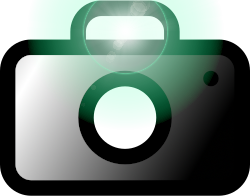scrot is a simple command line screen capture utility, it uses imlib2 to grab and save images.
scrot has many useful features:
- Support for multiple image formats: JPG, PNG, GIF, and others.
- The screenshot's quality is configurable.
- It is possible to capture a specific window or a rectangular area on the screen.
Because scrot is a command line utility, it can easily be scripted and put to novel uses. For instance, scrot can be used to monitor an X server in absence.
scrot is free software under the MIT-advertising license.
scrot needs your help. If you are a programmer and want to help a nice project, this is your opportunity.
The original scrot went unmaintained; the source of the last version, 0.8, was imported from Debian. After, patches from Debian and elsewhere were applied to create the 0.9 release. The details of our releases are registered in the ChangeLog file. Now, scrot is maintained by volunteers under Resurrecting Open Source Projects.
If you are interested in helping scrot, read the CONTRIBUTING.md file.
scrot requires a few projects and libraries:
- autoconf (build time only)
- autoconf-archive (build time only)
- pkg-config (build time only)
- imlib2
- libbsd (if
./configure --without-libbsd; makefails) - X (e.g. X.Org)
- libXcomposite (can be found in X.Org)
- libXext (can be found in X.Org)
- libxfixes (can be found in X.Org)
From a Unix command line, building is simple:
$ ./autogen.sh
$ ./configure
$ make
Cleaning up the build is also simple:
$ make distclean
You can return to a pristine source tree before running ./configure:
$ ./autogen.sh clean
If you've built scrot from source, scrot needs to be installed from a root shell:
# make install
Debian users can install scrot from their package manager:
$ sudo apt install scrot
scrot was originally developed by Tom Gilbert.
Currently, source code is maintained by volunteers. Newer versions are available at https://github.com/resurrecting-open-source-projects/scrot
